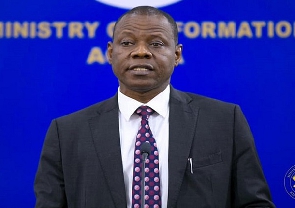The Ghana Health Service (GHS) is in discussions with Simprints Technology Ltd to introduce biometrics for easy identification of beneficiaries in the delivery of vaccines.
Dr Patrick Kuma-Aboagye, the Director-General of the GHS, at a workshop by Simprints to introduce the technology, said it would help identify people easily with the use of fingerprints and facial recognition.
He said it would be tested through piloting before decisions would be taken for its rollout.
“The GHS is already implementing data digitisation as part of government’s policy, and during COVID-19 era, surveillance has been electronic all over the country, therefore, this technology will strengthen it to reach more people,” he said.
Mr Stephen Taylor, the Chief Delivery Officer of Simprints, said the GHS had been the pioneers in terms of its approach to tackling COVID-19 and also building a very good health system, which would last many years to come.
“We are following the designs and specifications to come out with the very best biometric solution, biometrics have been proven in many contexts to be lifesaving, cost-effective to help with the vaccination programmes and immunisations,” he said.
Mr Taylor said Simprints built the technology to radically increase transparency and effectiveness in global development, ensuring that every vaccine and ‘public good’ reached the people who needed them the most.
“Accurate patient-level data is essential to prevent waste. Today, Covid-19 vaccines are one of the most precious public health commodities in the world with every vaccine wasted leading to a potential life lost,” he said.
Simprints, he said, had two biometric solutions; Simprints contact-based fingerprint solution, and the contact-less face solution.
Those had impacted maternal healthcare in slums in Bangladesh, with 11 per cent more post-natal care visits, 38 per cent more maternal health visits and 14 per cent more women saving money to prepare for birth, Mr Taylor said.
He said at the directive of the GHS, they would support the great efforts around the pandemic response in Ghana and help sustain the health system.
Chief Nathaniel Ebo Nsarko, the Executive Director of Global Millennium Promise Alliance, said the technology would help Ghana to have a credible database, credible means of identification and validation to reduce wastage and provide efficient use of time.
He said they would embark on massive sensitisation to create awareness on the technology and train technical staff and beneficiaries.
Participants included staff of the GHS, the Ministry of Health, Millennium Promise Alliance and Simprints.
Health News of Friday, 30 April 2021
Source: GNA
GHS works to utilise biometrics technology for vaccine delivery
Entertainment












